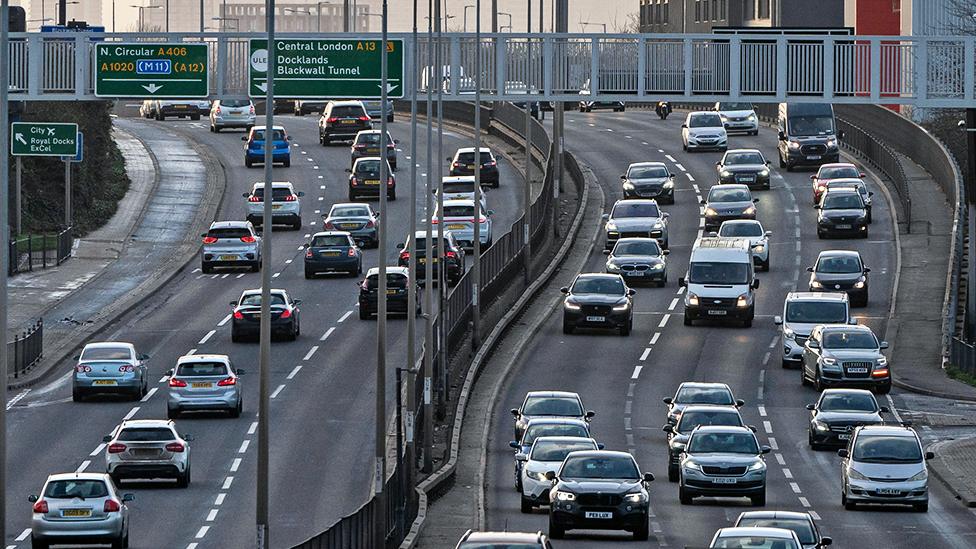ULEZ: Impact of mayor’s expansion questioned
- Published
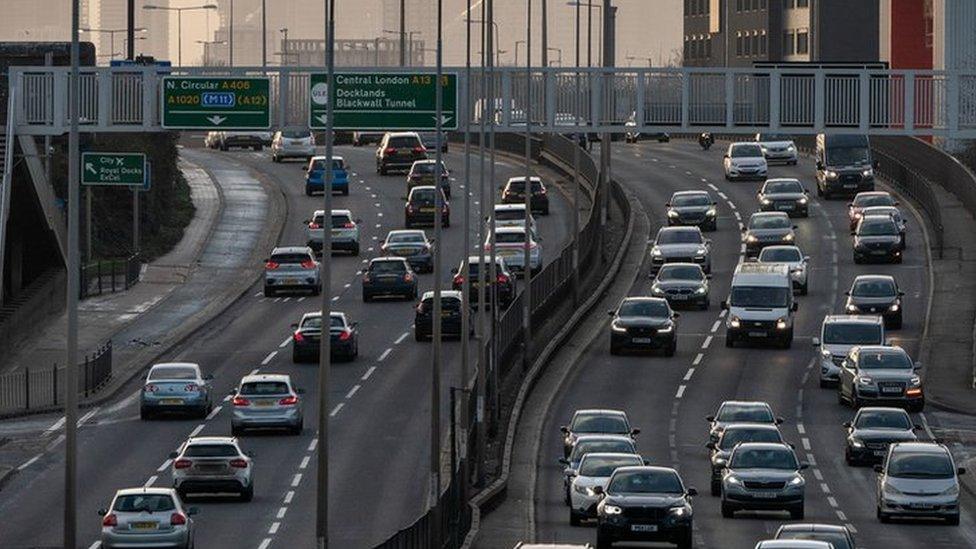
Transport for London says the majority of cars driven in London are ULEZ compliant
One in six cars registered in outer London did not meet Ultra Low Emission Zone (ULEZ) standards last year, according to figures from the Society of Motor Manufacturers and Traders.
The data was released following a Freedom of Information request by the BBC to Transport for London (TfL).
It comes amid a dispute over whether existing data used by City Hall and TfL is accurate.
However, London Mayor Sadiq Khan said the newly released data was unreliable.
From the end of August, all those driving vehicles within Greater London that do not meet ULEZ pollutant limits will face a £12.50 daily charge or a £180 fine.
Last month it was ruled that a judicial review could be held into the ULEZ expansion plan.
The mayor and TfL have previously used information from automatic number plate recognition cameras, capturing cars seen driving in the zone on an average day.
They say this shows 90% of cars are compliant, and TfL says this is a better gauge of the impact of the scheme than registered cars.
However, the data comes from an unknown number of cameras, placed mainly on arterial roads, and includes cars driving in from outside the capital.
It doesn't show differences in daily travel patterns, such as between weekdays and weekends.
Speaking to the London Assembly, Mr Khan told members the new figures were not the best indicator of the impact of an expanded ULEZ.
When announcing the expansion last November, City Hall used different data that showed 15% of cars were not compliant - and has said in an update that this figure had since fallen to 10%.
City Hall data explained
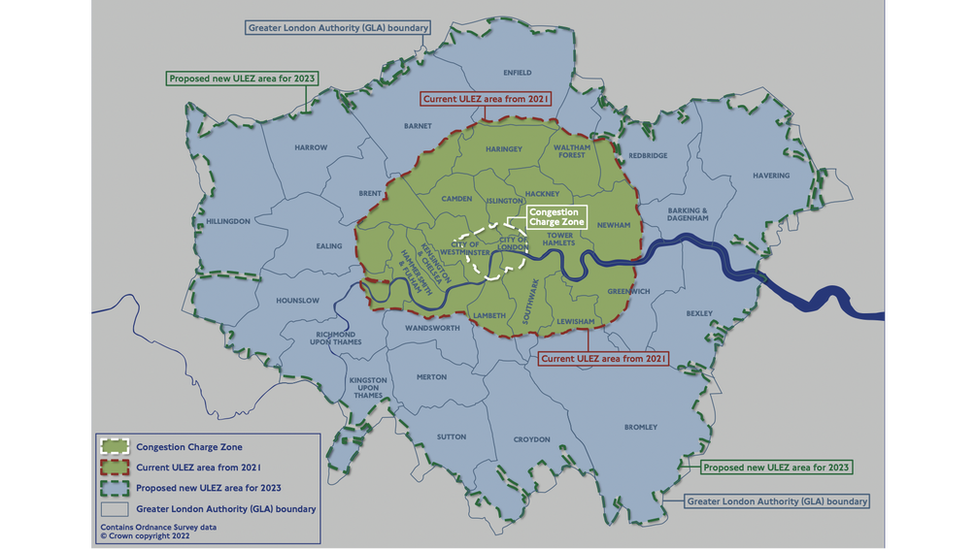
The ULEZ expansion will take place at the end of August
BBC London has asked the mayor and TfL for the actual number of cars seen on camera that are not ULEZ compliant - not just a daily average percentage - and for the number of cameras on which the data is based.
TfL says the information from its cameras is "the only data that gives a robust and accurate picture of how many vehicles are regularly driven in London", including vehicles that travel into the city from outside the boundary.
It will not disclose the number of cameras its preferred dataset is based on, saying that there is a risk of them being vandalised if it does.
What new data shows
1 in 6cars registered in outer London wasn't ULEZ compliant
280,000estimated non-compliant vehicles in outer London
It is the first time TfL has released information about the number of compliant cars registered to outer London households, as opposed to what is seen on TfL's camera network.
It shows that at the end of 2022, 84% of registered cars in outer London met the standards necessary to avoid a charge or fine and 16% did not.
According to the Department for Transport and DVLA, there were 1.8 million private cars registered to outer London households at the end of last year, external.
So it suggests that about 288,000 cars were not ULEZ compliant, at the time the mayor announced he was expanding the low-emissions scheme.
It is possible to compare this with data recently released by TfL for the previous year, in response to a Freedom of Information request.
That showed in 2021 roughly 25% of registered cars - about 450,000 - did not comply in outer London boroughs.
According to TfL, the percentage of compliant cars will have grown because of natural turnover and due to the mayor's decision to proceed with the ULEZ expansion, along with a scrappage scheme providing £2,000 for people on benefits who junk their polluting cars.
'TfL has been consistent'
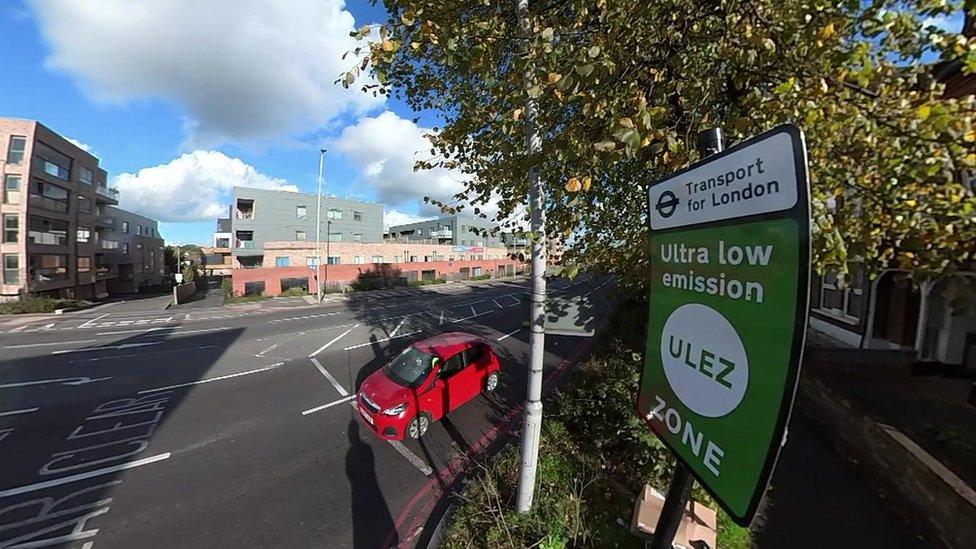
Five councils have launched a High Court challenge to the ULEZ expansion
Mr Khan was challenged over the new figures at Mayor's Question Time, where he said he was "clear that TfL has always been consistent since 2017 in using figures from the automatic number plate recognition cameras".
"From 2017 we've been comparing apples with apples, rather than vehicles registered. For a number of reasons, vehicles registered are not an accurate reflection of information.
"Often cars are registered in one place but may be driven elsewhere. Often a [registered] car may not be used as well as people think it's going to be used."
Meanwhile, Conservative minister for London, Paul Scully, has announced he is entering the race to be selected as his party's candidate to challenge Mr Khan for mayoralty next May.
The MP for Sutton and Cheam said he would scrap the ULEZ expansion immediately, adding: "More people than he will admit are going to be affected.
"One in six vehicles that are actually going to be affected by this has shown the extent of this punishing payment scheme on Londoners.
"It's an extra tax at a really difficult time for them."

Follow BBC London on Facebook, external, Twitter , externaland Instagram, external. Send your story ideas to hellobbclondon@bbc.co.uk
- Published12 April 2023
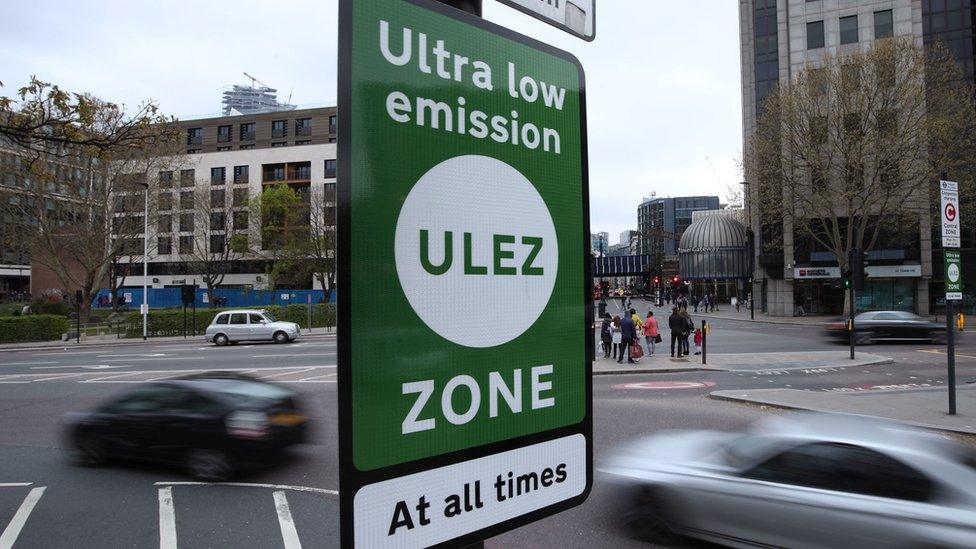
- Published23 February 2023
- Published15 February 2023
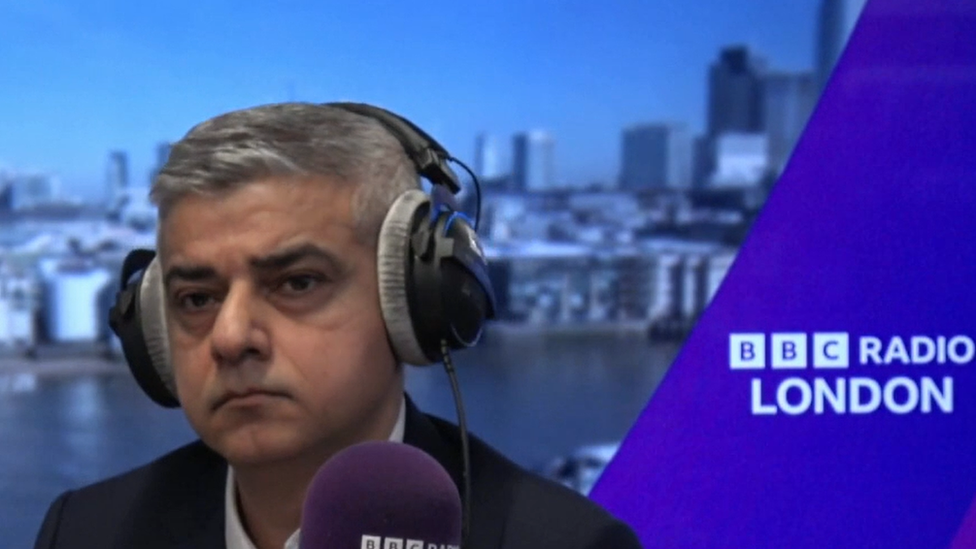
- Published30 January 2023
